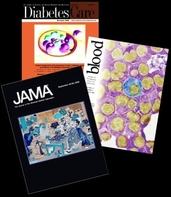
First, it is reasonable to determine how the report is selected and subsequently broadcast. Most of the journals are extremely detailed and generally highly technical in content. So, does someone read the multi-page article and then distill it down to the relevant news? Or, do they read the abstract that appears in every professional journal and use that as the basis for the newscast. Since the abstract covers the findings of the article, it is more reasonable to assume that the abstract is used rather than reading the entire report and then writing a new and original abstract. And, although I am not certain of this procedure, it seems like the only way to have these continual stories on the air, recognizing the cost associated with reading the entire technical article.
But even more troubling is that the number of contradictory reports and subsequent retractions that are borne of these medical inaccuracies. So, I did some research to find out if there really was an increase in bad journal reporting.
According to the Wall Street Journal investigation conducted by Thompson Reuters, there were only 22 retractions in medical journals in 2001. However, in 2011 there were 339. That’s 15 times the number of retractions. (Wall Street Journal, Gautam Naik, 10 August 2011). University of Missouri professor John Budd has studied retracted articles and reports that between the years 1997 and 2008, 47% of the retracted articles were pulled because of misconduct or presumed misconduct, and errors accounted for another 25%. 21% were retracted because the authors could not get the same result consistently.
Researchers are driven to publish in order to advance their careers, make money for their institution, and receive recognition for the effort. But, the desire to publish should still be subject to peer review, which seems to be missing. There was a time that it took 6 to 9 months to have an article published, but that time is now much shorter. There seems to be limited control over the published work.
For example, an article in the British Medical Journal by Dr. Andrew Wakefield, in 1998, linked childhood vaccines for MMR (measles, mumps, and rubella), with autism. In 2011, the journal retracted the study calling it “an elaborate fraud”. But, there is still controversy and parents are confused by the endless contradictions.
There are many articles that are retracted and cause such concern. But, please do not consider this a bashing of medical research. There are many good scientists and journal authors who take the responsibility of publishing seriously. They subject the work to peer review before going to press, and are making amazing breakthroughs. And, they are in the majority of the papers published.
But this post is a cautionary tale, and calls for more discretion for the public to “consider the source” and question what they read and hear. There is a website called Retraction Watch that list current retractions here. Most journals also show retractions on their websites so check for retractions or corrections on the journal site.

 RSS Feed
RSS Feed
